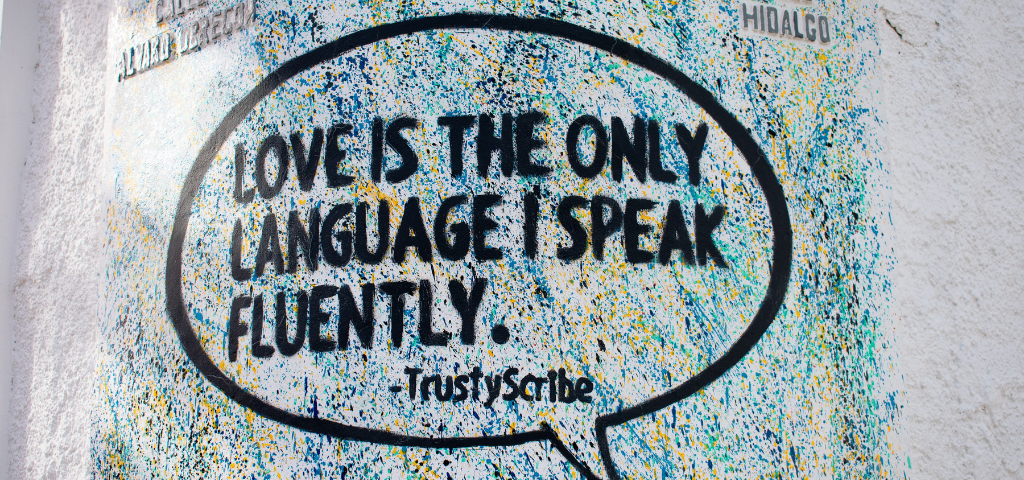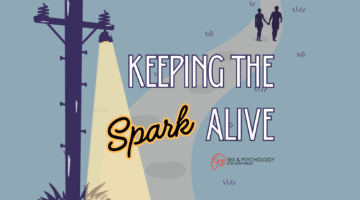The Truth About the 5 Love Languages, and How to Show Love
July 11, 2022 by Justin Lehmiller
The “love language” concept has become increasingly popular as a way of explaining differences in how people prefer to show and receive love. However, despite its enormous popularity, there still isn’t much scientific basis behind the love languages. So is this still a useful framework for understanding love? And if partners differ on what actions make them feel loved, how can they effectively maintain a happy and healthy relationship?
For the answers, I spoke with Dr. Terri Orbuch, a distinguished professor at Oakland University and a research scientist at the University of Michigan’s Institute for Social Research. She has been studying the science of love and relationships for more than three decades and her latest book is called the Secrets to Surviving Your Children’s Love Relationships.
Below is an excerpt from our conversation (you can listen to it in full in this podcast) in which we talk about the “Five Love Languages,” how this concept can help people talk about what makes them feel loved, and why it is important to remember that how we desire or express love can change over time. Note that this transcript has been lightly edited for clarity.
Justin Lehmiller: As “The Love Doctor,” I want to ask for your thoughts on the “Five Love Languages” because this is a super popular way of understanding love. I hear people talk about it all the time and I’m sure you probably do, too.
But something I think a lot of people don’t realize is that the whole love languages concept wasn’t based in research when it was developed. Despite not having scientific grounding, though, it has managed to become this huge cultural phenomenon.
I know a lot of people swear by it, but as a scientist, Terri, what do you think? Do you see value in the love languages concept?
Terri Orbuch: You took the words right out of my mouth, really. It is so popular. Everyone loves it. And I think everyone loves it because there’s a quiz online that you can take to understand your love language.
But as you said, there’s not much science or research to back any of this. So, what I often say is that it gives you an understanding that there are differences between you and your partner, and it allows you to identify something about you and how you express, or desire, love. You can share that with your partner; your partner can do the same. And in that moment, or in that understanding, that’s so wonderful because you’re able to take the perspective of your partner. I think the utility and the benefit of the love languages is that we can understand our partner better and we can understand ourselves better.
Justin Lehmiller: My view is similar. I think the value of the love languages idea is that it highlights the subjective nature of love, and that it isn’t just one thing. I think that actually gets at a really important point, which is that two people can be in a relationship, or more if you’re polyamorous or consensually non-monogamous, but those people can understand love in drastically different ways.
For example, you might think that your partner doesn’t love you because they’re not showing it in a way that you’re recognizing or acknowledging. I’ve actually seen this happen a lot in relationships where you’ve got two partners who say they love each other deeply, but they drift apart because neither one of them feels loved.
So do you have any advice for how do make sure your partner knows that you love them?
Terri Orbuch: One of the things I found when I’ve been following couples over time [in my research], is that it’s so important for two or more people in a relationship to share their expectations with one another. We think we understand our partner, or we can mind-read, or they can read our minds, but instead, those expectations, those meanings, those understandings about love, about the expression of love, and what we think equals love, is so important to communicate. As you said, love is a very complex phenomenon and we all see it, understand it, and express it in different ways. So take the time to express those understandings with your partner.
Another thing I found following these couples over time is that frustration is the leading reason why relationships don’t work. Frustration is the degree to which there is a gap or difference between what you think should happen in a relationship and then what actually does happen. The greater the difference, the more frustration. And frustration eats away at happiness in a relationship.
In my study, because it is long-term—it’s over 34 years now—you can actually see when people are frustrated, and when there’s a difference between their “should” statements and their realities, happiness declines significantly over time. The way to lessen frustration or neutralize frustration is to do exactly what I mentioned, express what you think should happen in your relationship, see if it’s realistic, see if your partner or partners can meet it, and then go from there. It’s true about love as well. Share those expectations, share those meanings so that frustration and disappointment don’t eat away at happiness in your relationship.
Justin Lehmiller: I think that’s great advice for any type of relationship. I’ve done some research on friends with benefits, for example—and I don’t have 34 years’ worth of data on friends with benefits—but I did do a one-year longitudinal study of people who had a friend with benefits. And one of the key things I found in terms of whether people still had a positive relationship at the end of that one-year period was whether they were on the same page at the beginning about what that relationship was and was not.
When people go in with drastically different expectations, where for example, somebody thinks, ‘Oh, a friend with benefits is an opportunity for love and romance, and it’s naturally going to transition into this,’ but the other person is like, ‘Hey, this is a great opportunity for sex, no strings attached,’ that’s kind of a recipe for disaster. I think it’s a really good idea in any relationship to get on the same page with your partner.
When it comes to something like love, it’s possible you might understand it in a very different way than your partner. And if the Five Love Languages gives you a way to negotiate that or talk about it, then great–use that.
But I think it’s also important to recognize that love and the way that we express it and the way that we want our partner to express it to us can also vary over the course of a relationship. So you don’t necessarily have just one permanent love language. You have to be flexible and adaptable.
Terri Orbuch: Oh, people change. Absolutely. And that’s okay. I think change is a good thing. So, when you change your love language—if that’s what you want to work with—or you change your understanding of love, or you change your expectations about what should be in a relationship based on having a child, a new job, getting older, or an illness, take a moment to step back. Do what we call a relationship tune-up: communicate and share the changed expectations, the shared meanings, the shared understandings or changed understandings about love. Absolutely, we change over time.
Justin Lehmiller: We change so much. I’ve been in a relationship now for more than two decades. The way that I wanted love to be expressed 20-some years ago was very different from how I want it to be expressed now. In the early stages of my relationship, I wanted us to spend all of our together because I saw that as an indicator of love. By contrast, I’m all about having some personal space now. Yes, I still want us to spend time together, of course. I’ve just changed as a person in terms of wanting some time to myself.
It’s sort of a different need because once you’ve been together for so long, you change in terms of what you want and the way that you feel appreciated and valued. I change, my partner changes, and we’ve learned to adapt and figure out how to meet each other’s needs at different stages of life. And I know that another 20 years from now, it’s probably going to be totally different again! So, you just have to be flexible and adaptable.
Terri Orbuch: Absolutely, I agree. The same is true for me. I’ve been married to the same man for over 29 years, [it will be] 30 years in November. So, absolutely, my needs and expectations have changed. And I think, again, the important thing is that that’s a good thing.
One of the other things I did in this long-term study is to ask partners separately about their rules for marriage. So, if they had an ideal relationship, what would their rules be for that ideal relationship? And what I found is that those rules change over time and that’s okay.
The one thing that was interesting, though, is that the expectation or rule for trust was true for both partners, men and women. All of my couples were heterosexual, married couples that I followed over time. In every year of the study, trust was the number one essential rule. After that, they changed, but trust became the number one ingredient for a happy, healthy, ideal relationship, which I found fascinating!
Justin Lehmiller: Yes, and it makes a lot of sense to me. I think you said something really important about negotiating rules for your relationship. Where people oftentimes go wrong in their relationships is that they never revisit those rules. They just assume that whatever it was that you said at the beginning is going to be the rules that are going to govern your relationship for the next 10, 20, 30, 40, 50 years.
And as we’ve been talking about, people change, rules change; and it’s okay for the rules to change in your relationship, but you have to be on the same page about that.
Listen to my full conversation with Terri in this podcast.
Want to learn more about Sex and Psychology? Click here for more from the blog or here to listen to the podcast. Follow Sex and Psychology on Facebook, Twitter (@JustinLehmiller), or Reddit to receive updates. You can also follow Dr. Lehmiller on YouTube and Instagram.
Image Source: Photo by Hannah Gibbs on Unsplash

Dr. Justin Lehmiller
Founder & Owner of Sex and PsychologyDr. Justin Lehmiller is a social psychologist and Research Fellow at The Kinsey Institute. He runs the Sex and Psychology blog and podcast and is author of the popular book Tell Me What You Want. Dr. Lehmiller is an award-winning educator, and a prolific researcher who has published more than 50 academic works.
Read full bio >


